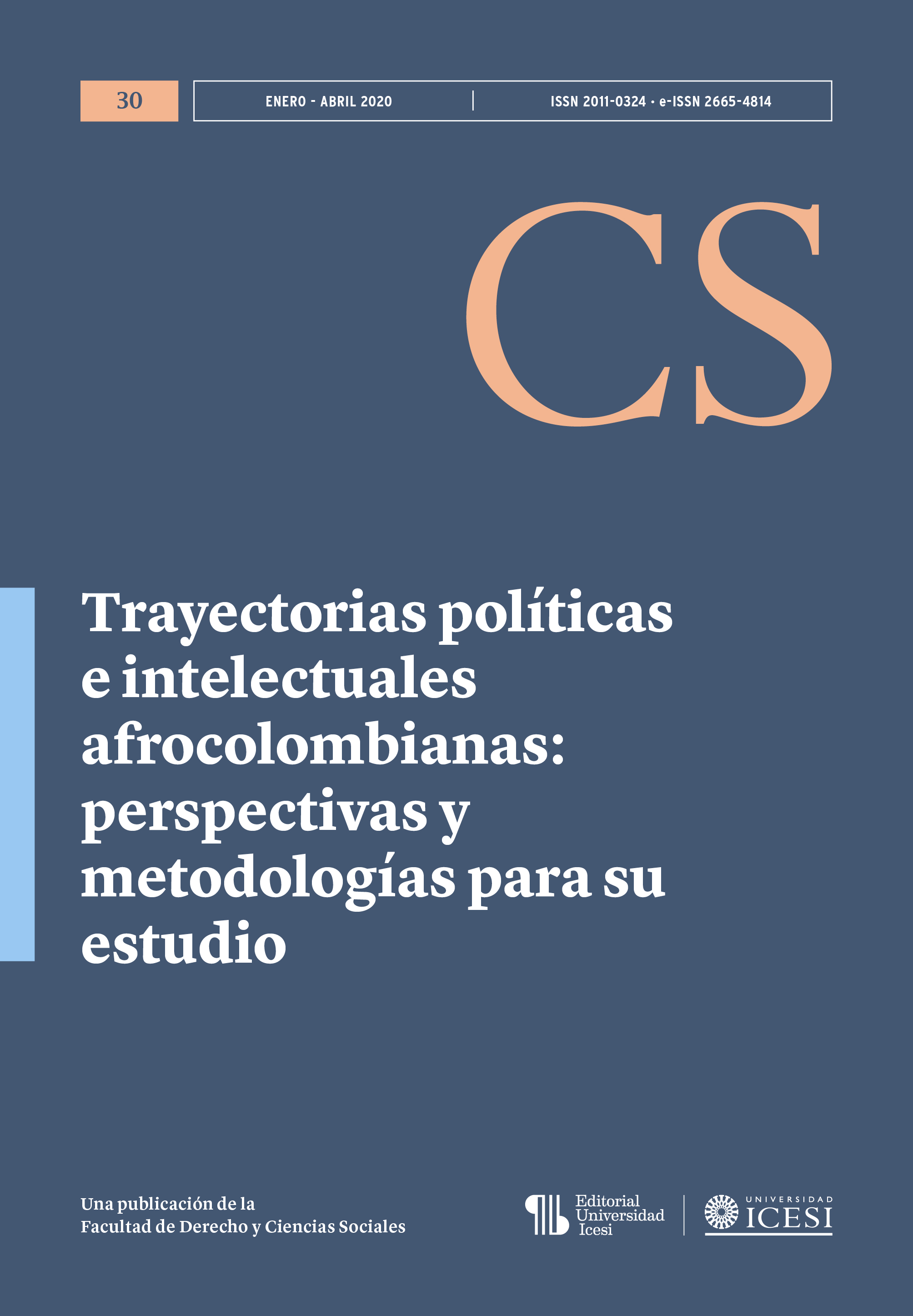Subjective Position and Criminal Act in Convicted of Homicide and Sexual Offense
DOI:
https://doi.org/10.18046/recs.i30.3107Keywords:
Subjective Position, Criminal Act, Acting Out, Passage to the Act, Psychic LawAbstract
The research aimed at relating the subjective position and the act’s clinical categories in persons who committed criminal acts and are deprived of their liberty. Subjective interviews were conducted with six subjects convicted of homicide or sexual offense with minors under 14. Each interview was a text to be deciphered, the signifiers that insist and that, when connected, reveal something about the singular position of the subject in facing the criminal act needed to be traced during enunciation. For the results, a case of homicide that exemplifies the research’s analysis categories is chosen. The sequence crime-guilt-responsibility-meaning of the sentence is found, which is a logical chain that allows to think of a singular position of the subject linked to the Other’s discourse as law. It is concluded that the singular subjective logic links five interconnected points: signifier, jouissance, body, phantom, and act’s clinical categories.
Downloads
References
Braunstein, Néstor Alberto (1982). La psicología y la teoría psicoanalítica. En Psicología, ideología y ciencia (pp. 47-61), coordinado por Amelia Rivaud; Néstor Alberto Braunstein. México: Siglo XXI.
Braunstein, Néstor Alberto (2006). El goce, un concepto lacaniano (2.ª ed.). Buenos Aires: Siglo XXI.
Carol, Alfredo Orlando (1999). La responsabilidad y sus consecuencias. En Culpa, responsabilidad y castigo en el discurso jurídico y psicoanalítico (Vol. I) (pp. 55-62), compilado por Marta Gerez-Ambertín. Tucumán: Universidad Nacional de Tucumán.
Congreso de Colombia (2000). Ley 599 de 2000. Por la cual se expide el Código Penal. Recuperado de http://www.secretariasenado.gov.co/senado/basedoc/ley_0599_2000.html
Gallo, Héctor; Ramírez, Mario Elkin (2012). El psicoanálisis y la investigación en la universidad. Buenos Aires: Grama.
Gerez-Ambertín, Marta (2004). La sanción penal: entre el “acto” y el “sujeto del acto”. En Culpa, responsabilidad y castigo en el discurso jurídico y psicoanalítico (Vol. 2) (pp. 17-36). Buenos Aires: Letra Viva.
Gerez-Ambertín, Marta (2006). Ley, prohibición y culpabilidad. En Culpa, responsabilidad y castigo en el discurso jurídico y psicoanalítico (Vol. 1) (pp. 37-56). Buenos Aires: Letra Viva.
Gerez-Ambertín, Marta (2009). Vicisitudes del acto criminal: acting out y pasaje al acto. En Culpa, responsabilidad y castigo en el discurso jurídico y psicoanalítico (Vol. 3) (pp. 49-76). Buenos Aires: Letra Viva.
Gerez-Ambertín, Marta (2013). Las voces del Superyó en la clínica psicoanalítica y en el malestar en la cultura (2.ª ed.). Buenos Aires: Letra Viva.
Lacan, Jacques (1967). Clase 1 del 15 de noviembre de 1967. En El seminario XV: el acto analítico. (pp. 1-13) (Ricardo Rodríguez Ponte, trad.). No editado. Argentina: Escuela Freudiana de Buenos Aires.
Lacan, Jacques (2006). Mi enseñanza. Paidós: Buenos Aires.
Lacan, Jacques (2007). La forclusión del Nombre del Padre. En El seminario, Libro 5: las formaciones del inconsciente (pp. 147-164). Buenos Aires: Paidós.
Lacan, Jacques (2008). Producción de los cuatro discursos. En El seminario, Libro 17: el reverso del psicoanálisis (pp. 9-28). Buenos Aires: Paidós.
Lacan, Jacques (2010). Introducción teórica a las funciones del psicoanálisis en criminología. En Escritos I (2.ª ed.) (pp. 129-150). Buenos Aires: Siglo XXI.
Lacan, Jacques (2012). Saber, ignorancia, verdad y goce. En Hablo a las paredes (pp. 11-46). Buenos Aires: Paidós.
Miller, Jacques Allain (2006). Introducción al método psicoanalítico. Buenos Aires: Paidós.
Sarrulle, Oscar (2006). El sentido de la pena en el derecho argentino. En Culpa, responsabilidad y castigo en el discurso jurídico y psicoanalítico (Vol. 1) (pp. 31-36), compilado por Marta Gerez-Ambertín. Buenos Aires: Letra Viva.
Soler, Colette (2010). El sujeto del acto. En Acto, pasaje al acto y acting out en psicoanálisis (pp. 35-43), compilado por Gloria Gómez. Bogotá: Temas Cruciales.
Soler, Colette (2015). ¿A qué se le llama perversión? Medellín: Asociación Foros del Campo Lacaniano de Medellín.
Downloads
Published
Issue
Section
License
Copyright (c) 2020 Ana Lucía Arango-Arias, César Alberto Soto-Echavarría

This work is licensed under a Creative Commons Attribution-NonCommercial 4.0 International License.
© Reserved Copyright
Material in this publication may be reproduced without authorization, provided the title, author and institutional source is acknowledged.
The content published in Revista CS is distributed under the Creative Commons BY-NC 4.0 Attribution/Recognition-NonCommercial 4.0 International license.
You are free to:
Share — copy and redistribute the material in any medium or format.
Adapt — remix, transform, and build upon the material.
Under the following terms:
Attribution — You must give appropriate credit , provide a link to the license, and indicate if changes were made . You may do so in any reasonable manner, but not in any way that suggests the licensor endorses you or your use.
NonCommercial — You may not use the material for commercial purposes.












